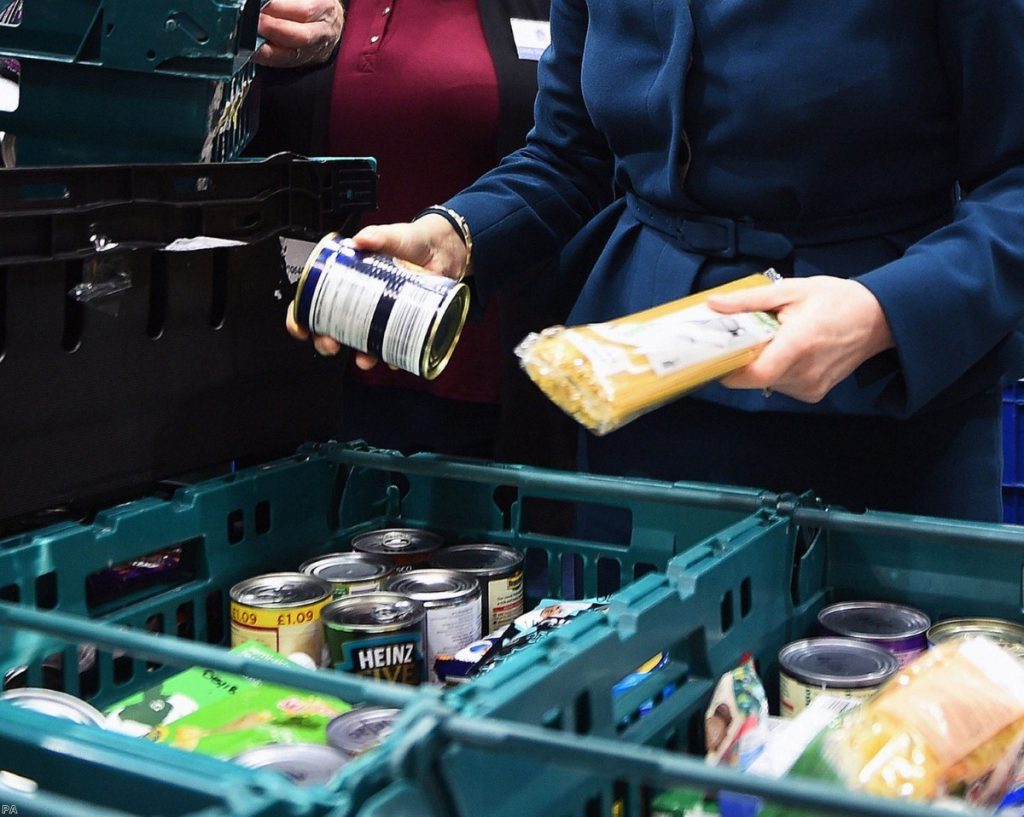By Natalie Bloomer
This week, the Islington food bank became one of the first to announce that it would be closing due to the coronavirus pandemic. With dwindling donations and more and more people needing to self-isolate, it's likely they won't be alone.
Food banks rely on the very products that many people are busy stockpiling. Bags of pasta, tins of beans or tomatoes and long-life milk are essential items in an emergency food package. Not only are many organisations seeing donations of this type fall, there are also restrictions being placed on the number of items allowed to be purchased at supermarkets, meaning food bank staff often can't top up stock levels themselves.
Another problem is the volunteer base. At the food bank that I help out at, a large number of the people who keep it running would be classed as high-risk for corona due to their age or health issues. This is the same at many food banks.


The people needing food are often unable to get to the food bank because they are self-isolating. Some places are arranging home deliveries, but this will depend on the size of the operation and will need enough volunteers to make it happen. In many areas it will simply not be an option.
There is often a lack of understanding about the amount of work that goes into running a food bank. It starts with the donation of items. They can come in by the trolley-load. All of it needs to be sorted in expiry date order and stored by category. Then individual standard parcels need to be packed and ready for when people arrive, making sure there is enough essential food for all different family sizes. Finally, once you're ready to hand the food out, volunteers will swap and add items depending on different needs – some people are vegetarians, for instance, some can't eat pork, some are dairy intolerant.
All of that is before you even get to the admin side or the time spent talking to people about their problems and referring them to suitable agencies. Without enough volunteers, all of this becomes incredibly difficult.
We're facing the possibility of food banks closing or scaling back their services at precisely the moment when the number of people needing them is likely to increase. Without a major intervention by the government, there could be millions of people who are self-employed, on zero hours contracts or in other work affected by the crisis, that will struggle to meet basic living costs in the coming months. If schools close, there will also be many families who usually rely on free school meals needing emergency food.
"There is a potential for a perfect storm," Haydon Spenceley from the Weston Favell food bank in Northampton says.
"As well as people who need food possibly having to self-isolate, staff and volunteers could be among those having to stay at home and there is likely to be increased demand. We are all working very hard to keep things running as normally as possible."
Other food aid projects are facing similar problems and there seems to be little advice as to how they should handle the crisis.
The Hope Centre in Northampton provides support to vulnerable adults, including the homeless and people living in poverty. As well as running a drop-in centre which serves food, the organisation also has a local food club where people on low incomes can access supplies at a reduced price. Chief executive Robin Burgess says he is concerned at the lack of meaningful planning and leadership about how the needs of these groups will be met.
"In the absence of local or national planning, it is apparently down to the voluntary sector to do the work needed to prevent death and harm to some of the UK’s most vulnerable people," he says.
"Hope has had to organise meetings of key people to address the needs of both client groups. But there are real limits to what we can do, without funds or resources, like access to accommodation for the homeless to self-isolate into, or to feed hungry people with no money".
A decade of austerity measures and welfare reforms have led to charities stepping in to replace the safety net removed by the government. Now, at this moment of crisis, the state must be responsible for ensuring that all citizens have enough to eat.
Natalie Bloomer is a freelance journalist. You can follow her on Twitter here.
The opinions in Politics.co.uk's Comment and Analysis section are those of the author and are no reflection of the views of the website or its owners.












